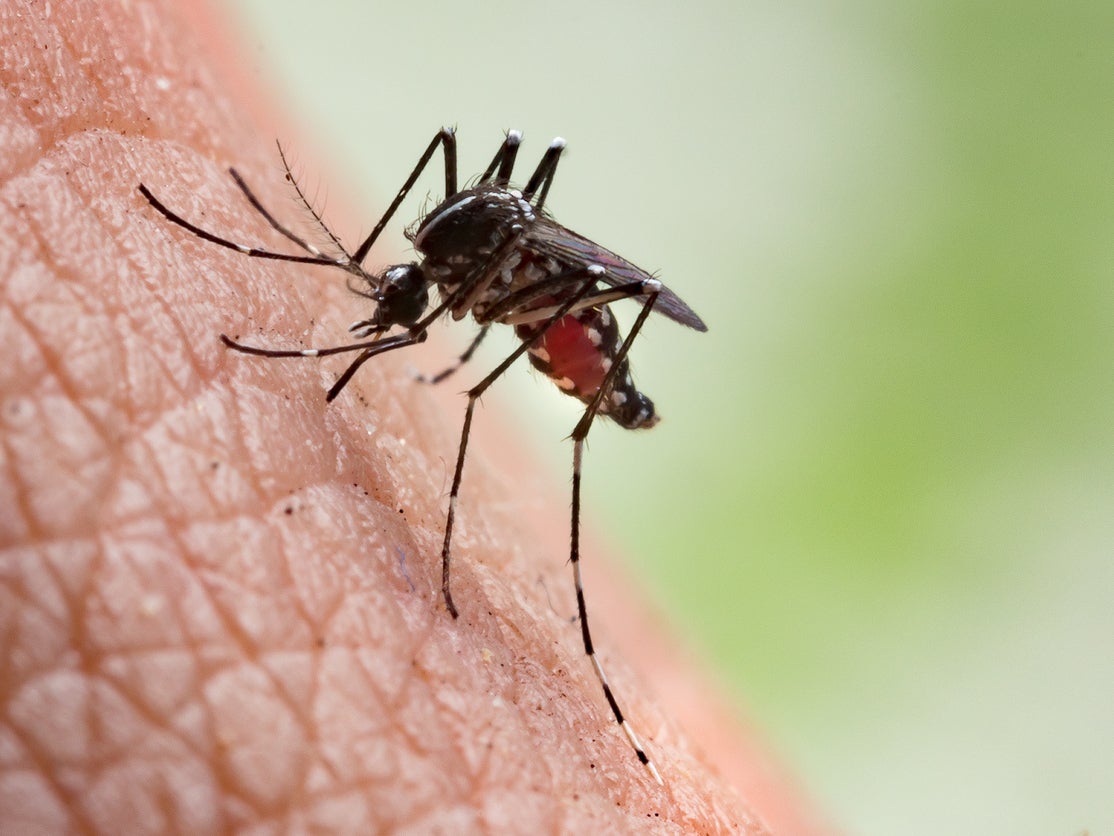Heatwave causes spike in insect bites - here's how to treat them
The number of calls being made the NHS 111 helpline about insect bites has drastically increased

Your support helps us to tell the story
From reproductive rights to climate change to Big Tech, The Independent is on the ground when the story is developing. Whether it's investigating the financials of Elon Musk's pro-Trump PAC or producing our latest documentary, 'The A Word', which shines a light on the American women fighting for reproductive rights, we know how important it is to parse out the facts from the messaging.
At such a critical moment in US history, we need reporters on the ground. Your donation allows us to keep sending journalists to speak to both sides of the story.
The Independent is trusted by Americans across the entire political spectrum. And unlike many other quality news outlets, we choose not to lock Americans out of our reporting and analysis with paywalls. We believe quality journalism should be available to everyone, paid for by those who can afford it.
Your support makes all the difference.The enduring heatwave in the UK has seen a surge in the number of calls being made to the NHS 111 helpline concerning irritating insect bites.
Antiobiotic Research UK has stated that the rising temperatures have led to an increase in horseflies, otherwise known as clegs, being identified in the country.
While horsefly bites can potentially lead to extremely harmful infections, there are several ways to treat milder insect bites from home.
Insect bites are usually fairly easy to spot, as they leave swollen lumps on the skin that are typically red in colour.
While they can become very itchy, it’s important to refrain from scratching them as this can make them even worse.
The symptoms can vary between individuals, with some insect bites lasting a few hours and others closer to a week.
Removing the sting
If you can see a sting or tick sticking out of your skin, you can try to remove it by brushing it sideways, advises St John’s Ambulance.
However, don’t try to squeeze it out with your fingers or pull it out using utensils like tweezers, as doing so could emit more venom into the open wound.
Cleaning the area
The NHS recommends cleaning the area around a bite or sting with soap and water, as doing so could help prevent further infection.
Reducing the swelling
When you have an insect bite that’s red and throbbing, using a cold compress such as a flannel that’s been soaked in cold water or an ice pack could help soothe your symptoms.
Another course of action that you could try is to elevate the area that’s been affected if possible.
This should be easy enough if you have a bite on your arm or leg.
Taking medication
While some may try to treat their insect bites with home remedies such as bicarbonate of soda, honey or vinegar, doing so is unlikely to prove a viable solution.
Instead, your pharmacist will be able to provide you with guidance on medicines such as creams and antihistamines that could be beneficial for you.
Contacting medical professionals
While many insect bites will swiftly disappear in due course, you should seek out professional medical advice if you’re particularly anxious about a bite or are experiencing severe symptoms.
According to the NHS, you should contact 999 if you or someone else is having trouble breathing efficiently as a result of a bite, has swelling on the face or around the mouth or throat, is vomiting, is feeling faint or dizzy, has an increased heart rate, can’t swallow properly or has fallen unconscious.
The National Institute for Health and Care Excellence advises that health professionals admit individuals to Accident and Emergency if there’s a possibility that they’ve had a “toxic reaction” to an insect bite or sting or if they've developed cellulitis, a bacterial skin infection.
The organisation also suggests referring people to an allergy specialist if there’s a chance that they could have experienced an allergic reaction to a bite or sting.
Join our commenting forum
Join thought-provoking conversations, follow other Independent readers and see their replies
Comments